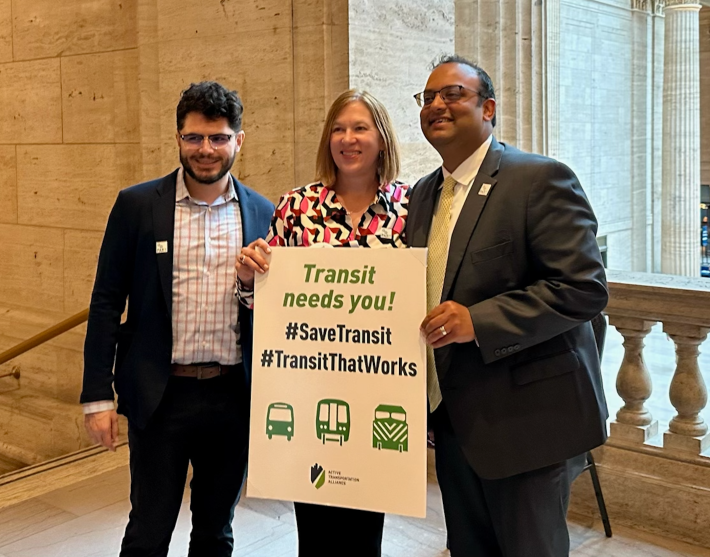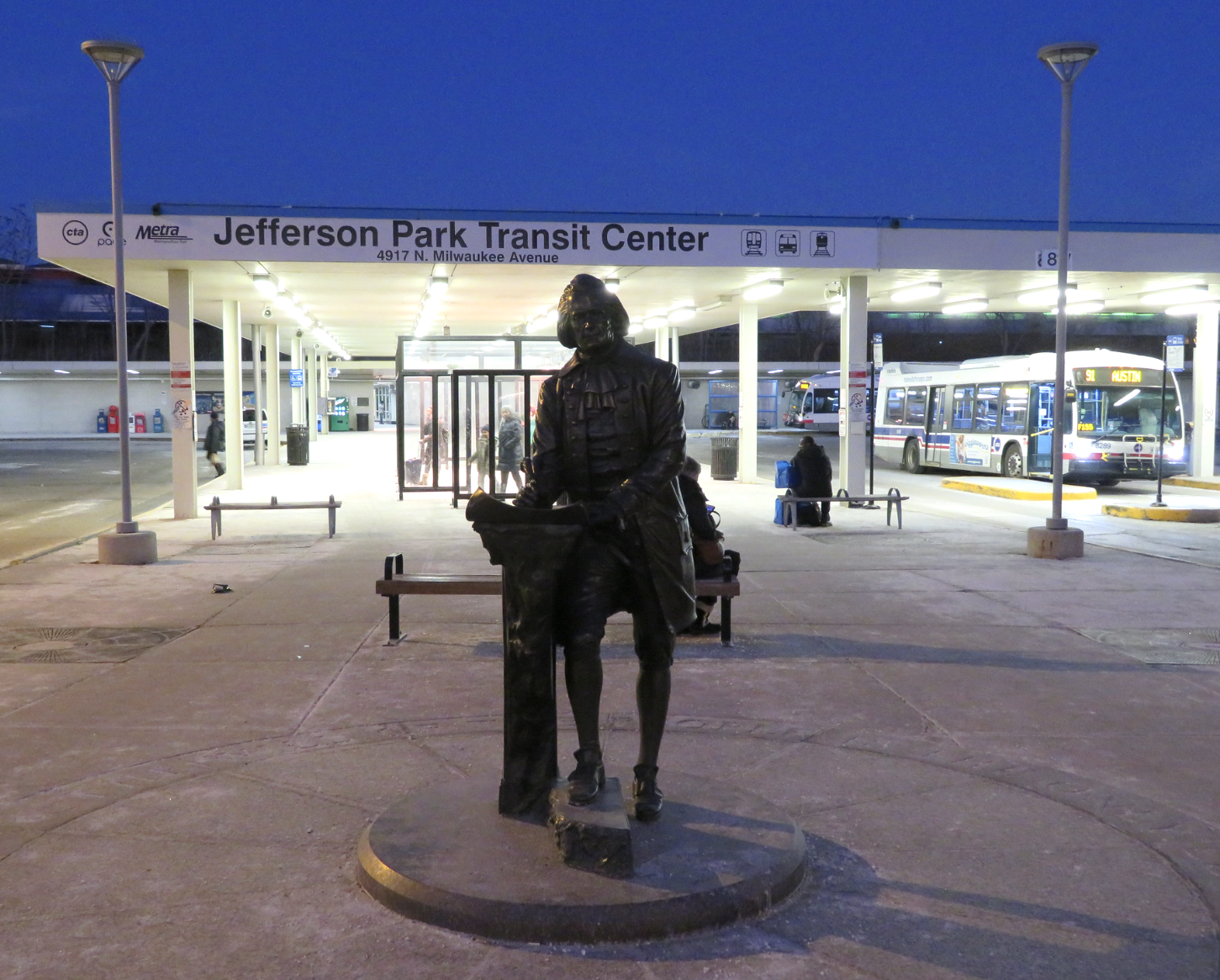
The Illinois General Assembly will consider a bill that would merge Chicagoland’s four public transportation agencies – CTA Metra, Pace, and the Regional Transportation Authority that oversees them – into a single bureau. Proposal HB5823, introduced by state Sen. Ram Villivalam, (D-8th) and state Rep. Eva-Dina Delgado (D-3rd), would create a single Metropolitan Mobility Authority to manage and operate all Chicago area bus and train service.
Here’s a quick overview of the bill (HB5823) establishing the Metropolitan Mobility Authority (MMA) as the successor to the Chicago region public transit agencies. The bill is a conversation starter; no action is expected this legislative session. https://t.co/XRFJ0s7tKe
— Thomas Bamonte (@TomBamonte) April 29, 2024
The bill comes in the wake of a commissioned report by the Chicago Metropolitan Agency for Planning and a recent paper from the Civic Federation, both of which recommend creating a single, integrated agency to improve service and avoid a $730M budget gap in 2026, when federal pandemic funding runs out. The Civic Federation states that consolidating the transit providers is a "comprehensive solution capable of addressing many of the existing operational inefficiencies while also solving for the calcified cultures, politics and bureaucratic competition dragging down our troubled system."
The boards of Chicagoland’s transit agencies collectively have 47 members appointed by 21 elected officials. The new Metropolitan Mobility Agency would be led by 18 voting directors, three appointed by the governor of Illinois, five by mayor of Chicago, five by the Cook County commissioner and one each by the chief executives of DuPage, Kane, Lake, McHenry and Will counties. A chair, outside the 18-member body, would be chosen by the board.
The Civic Federation states that the centralized agency would better coordinate service, streamline decision-making, reduce competition for funding, and prevent progress from being blocked by "parochial interests and siloed decision-making." Anticipated difficulties with the approach include the complexity and cost of merging four service boards and their administrative structures, and uncertainty about the effect on current labor contracts and negotiations.
The Active Transportation Alliance has been advocating for the governance reform, along with a $1.5B funding package at the state level. ATA campaign organizer W. Robert Schultz, III told Streetsblog, "I’m very enthusiastic that we will have a consolidated agency. But my optimism is tempered. I know what it takes to get an issue passed through the Illinois General Assembly. I’ve seen [transit] service deteriorate, and part of that is due to lack of investment and issues with governance. If we’re successful with this legislation the result should be a single agency that governs the region so we can have the system we want. This region couldn’t suffer the consequences of a cutback."

Grassroots transit advocacy group Commuters Take Action also released a statement in support of the bill, admonishing the CTA board for failing to hold embattled president Dorval Carter accountable, rubber-stamping his decisions and failing "to challenge his rosy reports about the CTA's performance — and awarded him sizable salary increases despite his lack of a contract or performance review process."
The CTAction statement continues, "While the proposed bill serves as a starting point, we hope lawmakers are eventually able to come together on legislation that will improve transit equally and equitably in both Chicago and its surrounding regions, connecting the entire area with fast, frequent, and reliable service. We look forward to seeing a proposal for meeting the upcoming challenge of the fiscal cliff — transit has been underfunded for too long in favor of damaging and hostile road and highway infrastructure, and now is a time to look for creative and innovative ways to build up a public good that can serve millions of Illinoisans from all walks of life."
ATA's Schultz said that assembly members need to be educated on the importance of public transportation, and why the system is struggling. "The biggest obstacle is probably communicating the value of public transit not just to Northeast Illinois, but the entire state. Studies have shown one dollar invested in public transit translates to three dollars back in the community," he said.
"On the consolidation question, we don’t want to see four bureaucracies replaced with one bureaucracy [unless it provides] better service and [reflects] the needs of racially marginalized communities," said Jose Manuel Almanza, director of advocacy at the mobility justice organization Equiticity. He added that if the four transit agencies are replaced with one, it must "provide better service and reflect the needs of racially marginalized communities."
"On the funding side, we don't want regressive taxes," Almanza said. "Chicagoland is the economic engine for the entire state. The General Assembly should take a hard look at regional or state funding for a service that benefits the entire state."
Schultz noted that the bill won’t officially come in front of the General Assembly until January 2025. In the meantime, he said ATA is trying to raise awareness about the issue and build support. He said, "If we can get people to step outside their corners – labor that works with CTA, CTA management, Pace management, RTA, the General Assembly, our [alderpersons], the representatives of our suburban communities – if all these people can come out of their parochialism and work together I think we can be successful in creating a world class system that would benefit the entire region.”

Did you appreciate this post? Please consider making a tax-deductible donation to help Streetsblog Chicago keep publishing through 2025. Thank you.





